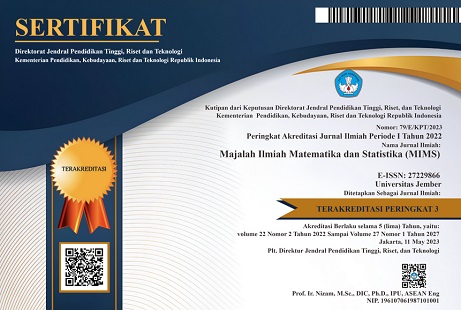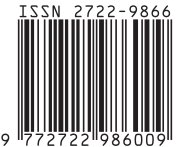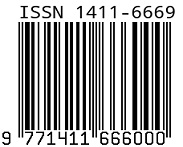Pemodelan kasus tingkat kemiskinan di Indonesia periode 2015-2021 dengan model regresi panel terboboti geografis
DOI:
https://doi.org/10.19184/mims.v24i2.39392Abstract
Poverty is a major concern of the Indonesian government and the government's efforts to reduce poverty are a national development priority. Therefore, it is interesting to identify the factors that influence poverty in Indonesia. Considering a spatial perspective, Geographically Weighted Panel Regression (GWPR) method is applied to the panel data set of 34 Indonesia provinces over the period 2016-2021. The best fitted model is found when using the adaptive kernel weighting function with poverty rate, length of schooling, provincial minimum wave, human development index, literacy rate, and unemployment rate as the predictor variables. The result suggests that provinces in Indonesia can be divided into seven groups based on significant predictors on poverty rate. The fixed effect GWPR model is the final model selected for the data which can explain about 75.64% of the variability in poverty rate in Indonesia.
Keywords: Fixed effect model, Geographically Weighted Panel Regression, Adaptive kernel.
MSC2020: 62P25.
Downloads
Downloads
Published
Issue
Section
License
Copyright (c) 2024 Majalah Ilmiah Matematika dan Statistika

This work is licensed under a Creative Commons Attribution-NonCommercial 4.0 International License.







